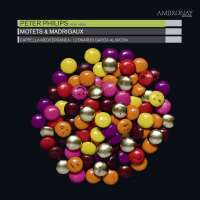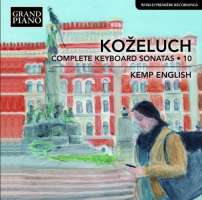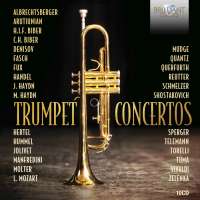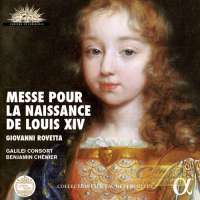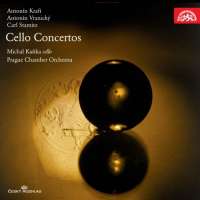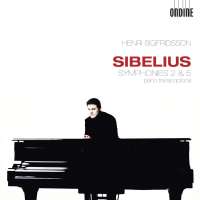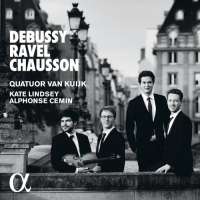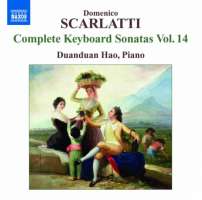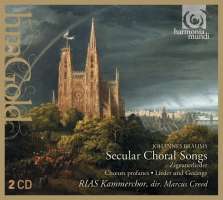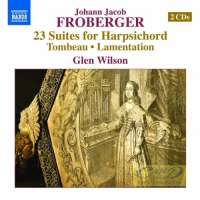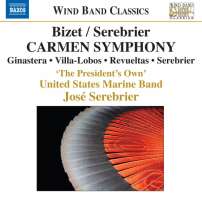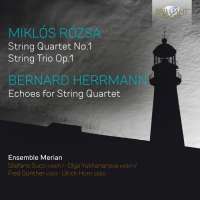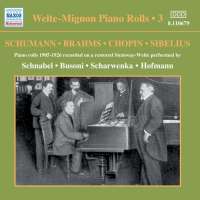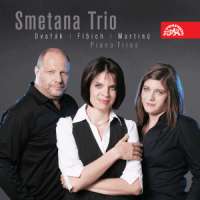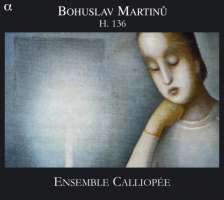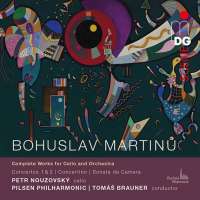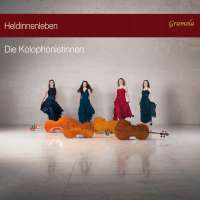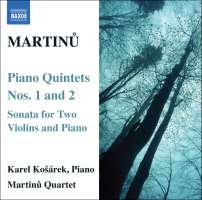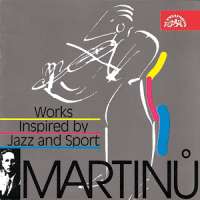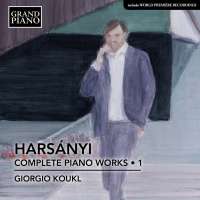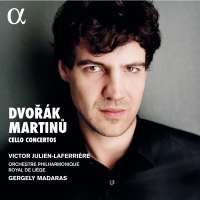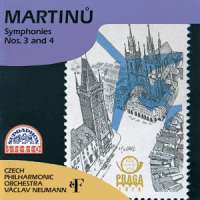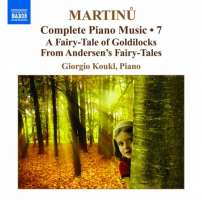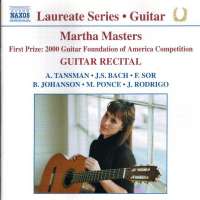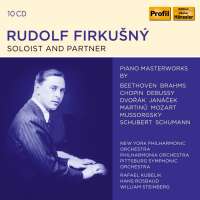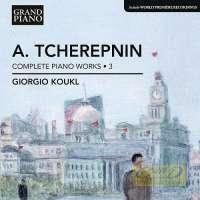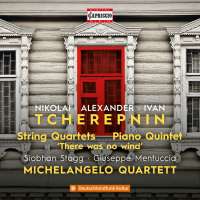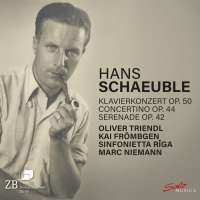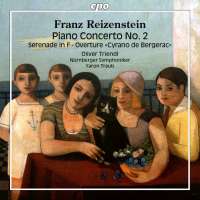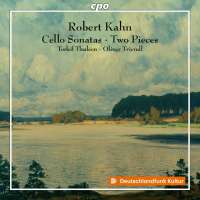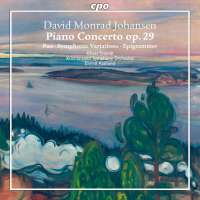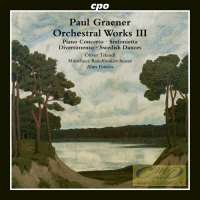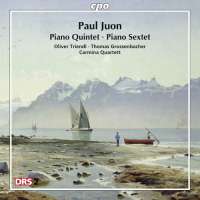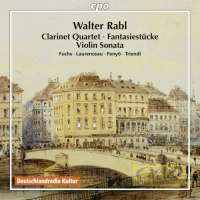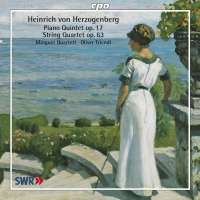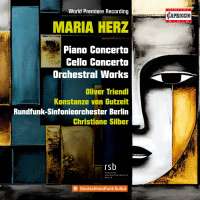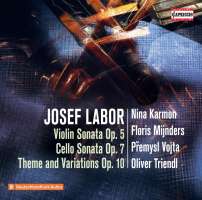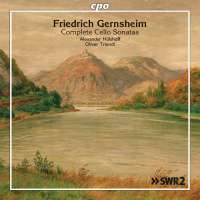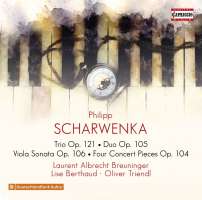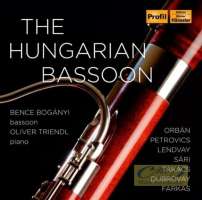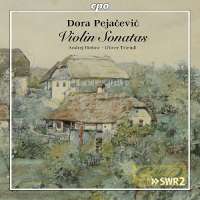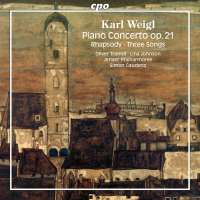
classical music distribution


(Produkt nie został jeszcze oceniony)
kompozytor
różni kompozytorzy
tytuł
La flute à L’École de Paris
pełny spis kompozytorów
Mihalovici, Marcel;
Harsányi, Tibor;
Tcherepnin, Alexander;
Beck, Conrad;
Martinu, Bohuslav;
Tansman, Alexander
Harsányi, Tibor;
Tcherepnin, Alexander;
Beck, Conrad;
Martinu, Bohuslav;
Tansman, Alexander
wykonawcy
Ruhland, Tatjana;
Triendl, Oliver
Triendl, Oliver
nr katalogowy
OC 494
opis
After the signal event that was World War I, gifted young composers trooped into the French metropolis full of hope. In 1925, the publisher Michel Dillard coined the term L’École de Paris (‘The Paris School’) in reference to the foreign composers then living in Paris, principally the Hungarian Tibor Harsányi (1898–1954), Poland’s Alexandre Tansman (1897–1986), Bohuslav Martinů from Czechoslovakia (1890–1959), Russia’s Alexander Tcherepnin (1899–1977), and the Romanian Marcel Mihalovici (1898–1985), all of whose works he specialised in disseminating.
•Harsányi: Pièces (3) for flute and piano
•Martinů: Sonata for Flute & Piano, H. 306
•Mihalovici: Mélodie for flute and piano
•Mihalovici: Miroir des Songes (Quasi una sonata), Op. 112
•Tansman: Sonatina for flute and piano
•Tcherepnin: Studie
These composers came to Paris from Eastern Europe and all, with the exception of Martinů [and Swiss composer Conrad Beck (1901–1989)], died there. All five initially addressed the difficult task of translating their countries’ folk music idioms into standard musical notation.
Several works on this programme are heard in their world premiere recordings.
Works:
•Beck, C: Sonatina for flute and piano (1960)
•Harsányi: Pièces (3) for flute and piano
•Martinů: Sonata for Flute & Piano, H. 306
•Mihalovici: Mélodie for flute and piano
•Mihalovici: Miroir des Songes (Quasi una sonata), Op. 112
•Tansman: Sonatina for flute and piano
•Tcherepnin: Studie
nośnik
CD
gatunek
Muzyka klasyczna
producent
Oehms Classics
data wydania
01-09-2023
EAN / kod kreskowy
4260034864948

(Produkt nie został jeszcze oceniony)
cena 64,00 zł
lubProdukt na zamówienie
Wysyłka ustalana indywidualnie.
Darmowa wysyłka dla zamówień powyżej 300 zł!
Darmowy kurier dla zamówień powyżej 500 zł!
sprawdź koszty wysyłkiProduktu jeszcze nie zrecenzowano, chcesz być pierwszy?
Klienci, którzy kupili ten produkt, kupili również
Stamitz, Carl, Kraft, Antonin, Vranický, Antonín
Kraft Vranický Stamitz: Cello Concertos
SU 4108-2
Brahms, Johannes
Brahms: Secular Choral Songs - Lieder und Gesänge, Zigeunerlieder
HMG 501592.93
Pozostałe płyty tego kompozytora
Martinu, Bohuslav, Dvorak, Antonin, Fibich, Zdenek
Dvorak / Fibich / Martinů: Piano Trios
SU 3927-2
Martinu, Bohuslav
MARTINU: H. 136 - Trio a cordes no. 1, Musique de chambre no. 1, Quatuor avec piano, Quintette a cordes (2 CD+DVD)
Alpha 143
Martinu, Bohuslav
WYCOFANY Martinu: Violin Concerto no. 2, Toccata & due canzoni
HMA 1951951
Martinu, Bohuslav
Martinu: Complete Piano Music Vol. 7 - Pohádka o Zlatovlásce, Z pohádek Andersenových
8.572025
Pozostałe płyty tego wykonawcy
różni kompozytorzy
The Hungarian Bassoon: Orban, Petrovics, Lendvay, Sari, Takacs, Dubrovay, Farkas
PH 14007
Napisz recenzję dla: La flute à L’École de Paris
Zapytaj o dostępność produktu
Twoje zapytanie:
Odpowiemy na adres:
Produkt został dodany do koszyka

różni kompozytorzy
La flute à L’École de Paris
1 szt
